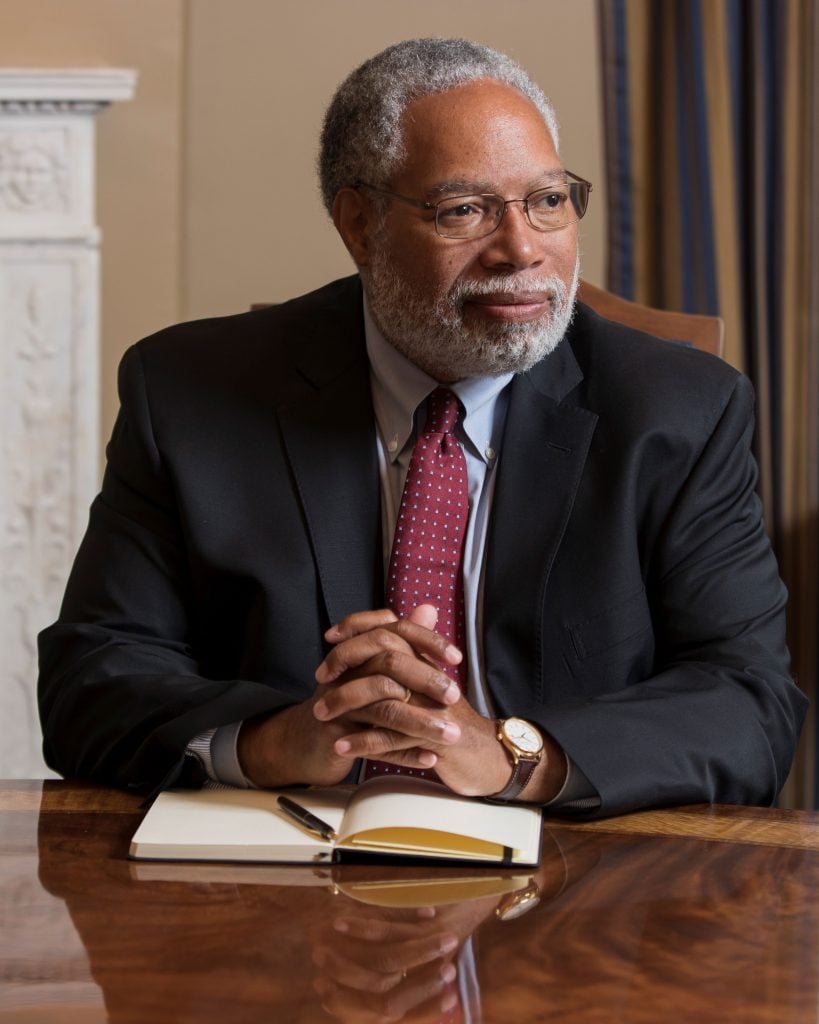Museums & Institutions
The Smithsonian Institution Is Using a $25 Million Grant to Get Americans Around the Country to Talk About Race
Bank of America is sponsoring the project, which is called "Our Shared History."

Bank of America is sponsoring the project, which is called "Our Shared History."

Zachary Small

Last Thursday evening, the Smithsonian Institution convened an online forum to discuss a topic that most museums have historically avoided: race.
“This initiative is our first attempt to foster an understanding of race and racism in the United States,” said Lonnie G. Bunch III, the organization’s leader, who participated in an early segment of the program. “It is important to examine unvarnished history, even when it’s complicated and especially when it challenges our preconceived ideas.”
The evening’s discussion marked the first event in a two-year initiative, supported with a $25 million gift from the Bank of America, called “Our Shared Future: Reckoning with the Racial Past.” Organizers began planning the event last summer when the police murder of George Floyd sparked worldwide protests against racial injustice.
“Conversations about race have changed over the past few years,” said Sabrina Lynn Motley, the forum’s host, who also serves as director of the Smithsonian Folklife Festival. “We are considering race and equity far beyond black and white. Race is a social construct that has a real impact on our lives, and racism is a real device used to fuel systems of inequity and limit equal access to resources and power.”
Through the initiative, Smithsonian officials hope to create a space where participants can join the conversation about race’s role in shaping American history. Although the pandemic has postponed or canceled some original plans for events, organizers still hope to bring town halls, conferences, and pop-events to regions across the country.
Curators see this as an opportunity to help Americans reckon with social inequities, and there are plans to conduct oral histories to capture how event participants experience race today.
“We want to meet people in their racial justice journey,” said Ariana Curtis, the program’s director of content, who also works as a curator for the Smithsonian National Museum of African American History and Culture. “This is an excellent opportunity for us to think differently about how we can all work together moving forward.”
Thursday’s event brought together Smithsonian curators, university professors, and activists. A mini documentary aired during the program included stories about predatory loans and excessive interest rates, which have limited the access of Latinx communities to bank accounts and credit histories. Another segment focused on the Institute for Healing Justice and Equity at St. Louis University, which helped communities deal with trauma following the fatal 2014 police shooting of Mike Brown in Ferguson, Missouri.
“Our Shared Future” was also an opportunity for the researchers to directly address the museum field’s complicity in upholding racism, which activists have been calling on institutions like the Smithsonian to do for years.
“What museums traditionally have done is that they have supported notions of eugenics,” Bunch said during the program. “And in essence, the challenge for museums is to recognize that those notions have been countered and that museums need to take the other stance.”
“This is a really good step forward,” said Kelli Morgan, a curator and diversity consultant who is about to start a position as a professor of practice and director of curatorial studies at Tufts University. “Museums have been the quintessential spaces of racial constructions for Europeans and Americans. I think museums are therefore the spaces where these conversations need to start.”